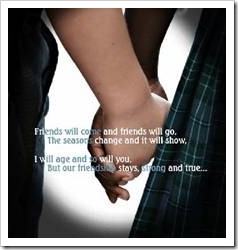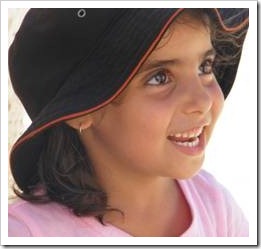
Last week, I described the first 8 out of 15 friendliness skills and today, I will introduce you to another 7: Avoiding criticism, Being positive, Keeping secrets, Never gossiping, Not being bossy, Listening and Being fun.
Avoiding criticism
One very important social skill is never to tell others they are wrong, bad, incapable or nasty. When a child criticizes another, it usually the other kid thinks, “You think you are better than me” or “You’re not the boss of me” and this starts a fight.
Fighting is not the relationships kids (or grownups) like to be in and they will try to stay away from someone who constantly criticizes them, argues with them or fights with them. The link between criticism and having friends is not easy to see (most grown-ups do not understand it), but kids who understand it from an early stage have a huge advantage in their relationships.
Teach your kids that no one is perfect, that what seems right for some is not right for others and that we do not need to tell others everything that is on our mind. Teach them to distinguish between honesty and rudeness. Remind them that telling others everything you think about them does not go hand in hand with being kind.
Being positive

No one likes to be blamed for things they have not done or listen to someone else complaining – it is usually a sign they do not know how to read the social codes of behavior and it is risky to be around them. If you socialize with a grouch, you might just be the next target of their complaints.
Positive kids can get out of trouble and solve problems and they do not linger on them for too long, while whiners drag the problem longer than others can stand.
Teaching kids to be positive start with being a positive person and parent.
Keeping secrets
Secrets are very dear to kids. If you know how to keep secret, you are a good friend, and if you have revealed even one secret, you might find yourself out of the group and other kids will shun you. Sharing secrets are a sign of trust, especially for kids. If I told you something that I consider a secret, it means I trust you to keep it to yourself. If you do not, you have betrayed me and I no longer trust you.
Keeping a secret is not easy even for grown-ups, but it is a necessary part of any relationship.
As a parent, you can help your kids keep their friends’ secrets by lending them your ears and keeping the secrets they share with you. This can be a wonderful outlet for them and will help them build the trust with their friends. Of course, it will be harder when they need to keep the secrets from Mom and Dad too, so you can suggest their siblings, if they have any, or whispering to their teddy/doll.
Never gossiping
Gossiping is another form of betrayal that is a sign of not following the social codes of friendship. Gossiping is something kids learn from their parents. At dinnertime, when others tell bad things about others, kids learn that this is acceptable behavior, but doing it with their friends will repel them.

Teach your kids that discussing challenges with you is not gossiping and that you will never use it against them, but when they are with other friends, they should never say bad things about others behind they back. They can say good things about others when they are not there, but never bad things, and if anyone else says something bad, they should never join in.
Not being bossy
A relationship means that both parties benefit from being connected. There is some equality in it. Being bossy changes that balance and destroys the relationship. When one partner in the relationship is controlling, it means they are not equal anymore and the relationship is charged so that one tiny conflict might cause the whole relationship to explode.
It takes kids a bit of time to notice that another kid is bossing them around, but when they do, the relationship will not be the same anymore and it may even be ruined completely. In every relationship, there is give-and-take and it is OK if both sides give up from time to time, but if it is always one of them giving up then this is not a good relationship and may lead to bullying.
Teaching kids to be confident is the best thing you can do to help your kids identify this issue (from both sides) and stop it in an assertive way.
Listening

Listening is an art and may need a year of posts to cover, but generally, the best thing you can do as a parent is to set an example and make sure your relationship with your children does not involve you controlling the auditory space and managing all the conversations. The same rules apply to kids and grown-ups. In every interaction, ask yourself, “Who talked more?” If one of you talks significantly more, that is a sign you are not equal in the relationship and your relationship is at risk, so change the balance. If the you are the one controlling the conversation space, it is easier. Just make a conscious effort to listen more. If the child is the one doing most of the talking, you have to discuss this with them in an assertive way.
Teach your kids to monitor their listening in their relationships with others. It may take time, but it is a learned skill everyone can develop.
Being fun
Fun is the essence of every relationship for kids (and for some adults who have not forgotten). When I survey kids or when I coach them, it is clear that fun is their currency. They define most of the desires in life in terms of fun. They want to have fun, they love fun siblings and parents, they like fun games, they love watching fun movies and they obviously like fun friends. No one likes to be with grouchy or gloomy “party poopers”.
Being fun means you like playing and having a good time with others and the social interaction is much more important to you than what you think, what you want, being bossy and being in control. I guess being fun is having all the social skills I have mentioned already: sharing, having good manners, complimenting others, starting a conversation, knowing how to lose, collaborating, working in a team, helping, not criticizing, being positive, keeping secrets, not gossiping, not being bossy and listening. Having all those skills makes it fun to be around you, because it is safe and there is no risk – you know the rules of the game of friendship and others can predict the outcome of their relationships with you.
Games are wonderful ways to practice social skills and the family is the first social group of every child. Playing with your kids, preferably with siblings to have a bigger group interaction, can be a good start to teaching those skills.

My own children did not sit in class every year of their schooling. In fact, they skipped many days (Eden missed a total of 3½ years out of 13 and Tsoof missed 2 and has many activities during class time).
I have been asked many times, “Ronit, why don’t you just switch to home schooling? You can obviously teach them everything they need to know”. Well, it is true that I can teach my kids everything they need to know academically, but there is one big thing I cannot give them and that is enough social interaction to develop their social skills.
For me, the rich and intensive social interactions with other children and adults is the only reason to send kids to school and academic success are mostly a byproduct of being good at these interactions.
Go forth and raise friendly kids!
Ronit
This post is part of the series How to Raise Friendly Kids:
- How to Raise Friendly Kids (1): What are Friends for?
- How to Raise Friendly Kids (2): Me and you together
- How to Raise Friendly Kids (3): Friends are forever
- Teach Your Kids How to Network











